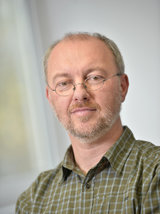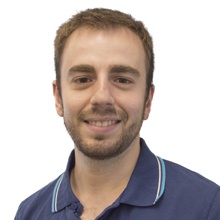Prof. Dr. Philippe Schmitt-Kopplin (Helmholtz Center Munich)
Biological Colloquium at the Biology Center of the Christian-Albrechts-University Kiel
Monday, 16 January 2017, 4:15 pm
Lecture hall E 60 of the Biology Center
Am Botanischen Garten 5
As guest of the CRC 1182
Prof. Dr. Philippe Schmitt-Kopplin
Helmholtz Zentrum München
Talks about:
High resolution tailored metabolomics in medical and environmental research
From a traditional definition in the field of human health, metabolomics measures the
concentrations of the large number of naturally occurring small molecules (called
metabolites), that are produced as intermediates and end-products of all metabolic
processes. They are analyzed from biological samples and body fluids such as urine,
saliva, blood plasma, tissue sample; even the simple breath (exhaled breath
condensates) can carry the information about the state of health. The total number of
different metabolites is still unknown; some estimation ranges from few ten thousands
to about one million, but even this latter estimate may be conservative; including plant
and bacterial metabolites that are not necessary to keep the organism alive, also
referred to as secondary metabolites, the number is enormously larger. The probable
number of metabolites is also considerably larger than the number of corresponding
genes, so it seems that the currently available databases cover at best 5% of the total
number of existing metabolites. With our integrated analytical approaches (LC-MS,
NMR and ICR-FT/MS) data we annotate from databases around 10% of the
experimental signals.
Metabolomic, as the comprehensive study of metabolic reactions is growing very
rapidly and integrates the knowledge of earlier developed Omics-branches. Especially
ICR-FT/MS describes highly complex mixtures in complex systems on the level of the
elementary composition distribution and is shown in this presentation as an dedicated
and innovative mass spectrometry tool to understand the composition and processes
on a molecular level in various study fields from food chemistry, biology, microbiomes
towards the discovery of new bioactives.
1. Research Unit Analytical Biogeochemistry, Helmholtz Center Munich, Ingolstädter Landstraße 1, 85764
Oberschleißheim, Germany
2. Chair of Analytical Food Chemistry, Technische Universität München, Alte Akademie 10, 85354
Freising, Germany
Who
When
January 16th, 2017
16:15





